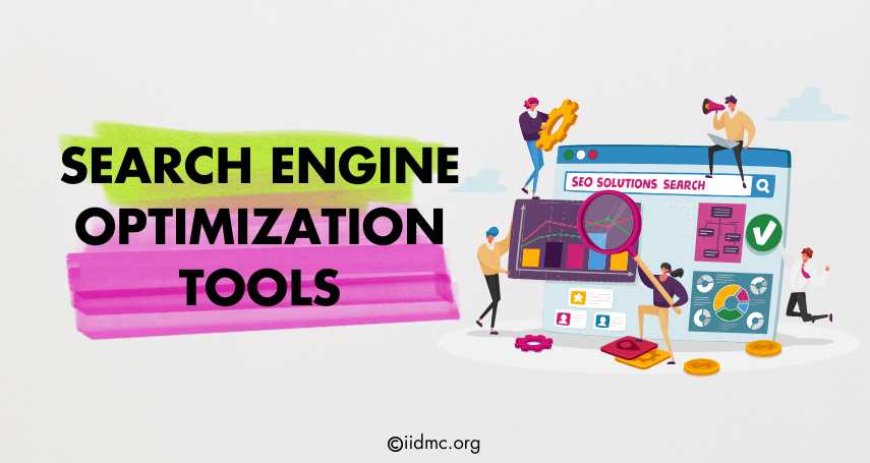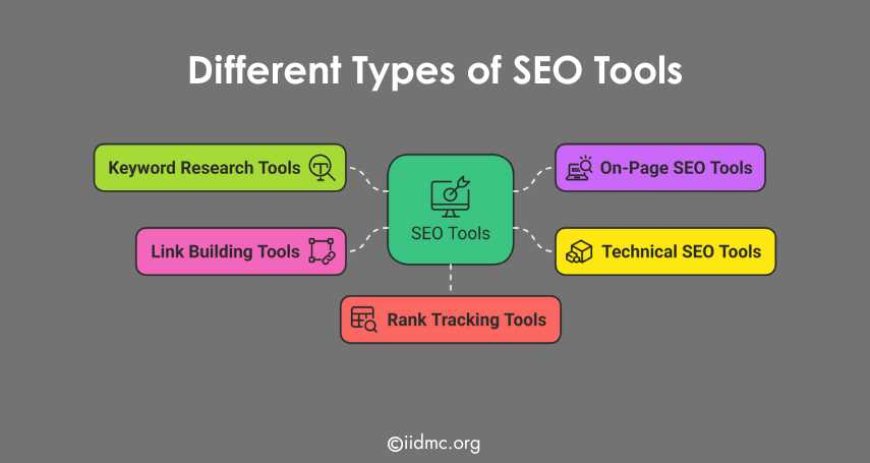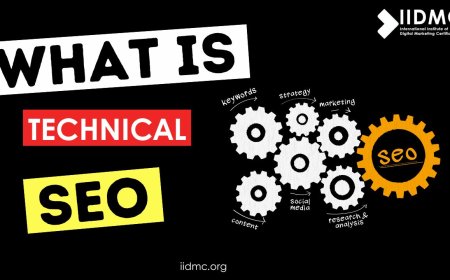What Are Search Engine Optimization Tools?
Learn what search engine optimization tools are, why they are important, and how to use them to improve your website's ranking and traffic in easy steps.

If you manage a website, blog, or online business, you understand the importance of ranking higher on Google. Increased traffic to your website can result in more leads, readers, or sales. This is known as SEO. Based on my experience managing websites, I believe that good SEO is not always simple.
Making a significant impact requires proper tools. Use SEO tools to identify issues, monitor your progress, and make improvements more quickly. I'll tell you about SEO tools, their differences, and how to choose the right tools.
What Are SEO Tools?
SEO tools are programs or online services that help you improve your website for search engines. They offer different features like checking how well your site is doing, finding good keywords, seeing what your competitors are doing, and much more.
Think of SEO tools like the toolkit you use to fix your car. You could probably fix small problems by guessing, but with the right tools, the job becomes much easier and more professional. In the same way, these tools help you fix and improve your website properly.
Why Are SEO Tools Important?
These tools save time, show you important information, and help you make better decisions. Without these tools, you would be guessing what works and what doesn’t. With tools, you get real data that tells you what steps to take.
Here are a few reasons why SEO tools are important:
-
Save Time: Instead of checking every page manually, tools can scan your entire site.
-
Spot Problems: Tools can find errors on your website that you might miss.
-
Understand Your Audience: Learn what keywords people are searching for.
-
Spy on Competitors: See what others in your industry are doing.
-
Measure Success: Track how your website is improving over time.
Different Types of SEO Tools
There are many types of tools out there. Each type focuses on a different part of SEO. Let’s look at them one by one.

Keyword Research Tools
Keywords are the words people type into search engines. To rank well, you need to know which keywords to target.
Keyword research tools help you find:
-
Popular keywords
-
How many people search for a keyword each month
-
How hard it is to rank for a keyword
Popular keyword research tools:
-
Google Keyword Planner
-
Ubersuggest
-
Ahrefs Keyword Explorer
-
SEMrush
On-Page SEO Tools
On-page SEO is about making your pages better for users and search engines. These tools help you:
-
Check if your titles, headings, and content are optimized.
-
Improve your images and meta descriptions.
-
Fix broken links.
Popular on-page SEO tools:
-
Yoast SEO (for WordPress)
-
Screaming Frog SEO Spider
-
Moz On-Page Grader
Technical SEO Tools
Technical SEO focuses on how well your website is built. Search engines like websites that load fast, are secure and are easy to navigate.
Technical SEO tools help you:
-
Find broken pages
-
Check your website speed
-
Make sure your site is mobile-friendly
Popular technical SEO tools:
-
Google PageSpeed Insights
-
GTmetrix
-
Ahrefs Site Audit
-
SEMrush Site Audit
Link Building Tools
Links from other websites to yours are very important for SEO. They show search engines that your site is trustworthy.
Link building tools help you:
-
Find link opportunities
-
Check who is linking to you
-
Analyze your competitor’s backlinks
Popular link building tools:
-
Ahrefs
-
SEMrush
-
Moz Link Explorer
Rank Tracking Tools
Once you start working on SEO, you want to see if your rankings are improving. Rank tracking tools show you where your pages are in search engine results for specific keywords.
Popular rank tracking tools:
-
Ahrefs Rank Tracker
-
SEMrush Position Tracking
-
SERPWatcher
How to Choose the Right SEO Tools for You
With so many tools out there, it can feel overwhelming. But you don’t need every tool on the market. Here are a few tips to choose the right ones:
-
Know your goals: Are you concentrating on technical fixes, backlinks, or content?
-
Begin with the basics: Start with simple plans or free tools.
-
Check Reviews: Find out what other users have to say about the tool.
-
Take Advantage of Free Trials: Free trials are available for many paid tools. Check if the tool meets your needs by using them.
Free vs Paid SEO Tools
Both free and paid SEO tools are there. You might wonder, "Should I pay for SEO tools?"
The answer depends on your needs.
Free tools are excellent for beginners and small websites. Without investing any money, they can help you in getting started. Ubersuggest (free version), Google Analytics, and Google Search Console are a few examples.
Paid tools provide additional features, deeper insights, and greater support. They work better for serious SEO efforts, larger websites, and businesses. Ahrefs, SEMrush, and Moz Pro are a few examples.
Using free tools is acceptable if you're just getting started. You can purchase paid tools as your website expands.
Best SEO Tools You Should Know About
Here are some of the most trusted and widely used SEO tools:
Google Analytics helps you understand who is visiting your site, how they found you, and what they are doing on your site. It's completely free and very powerful.
2. Google Search Console
Search Console shows how your site is performing in Google search results. It tells you about errors, indexing issues, and more.
3. Ahrefs
Ahrefs is a paid tool that is very popular among SEO experts. It offers keyword research, site audits, backlink analysis, and much more.
4. SEMrush
Another useful tool is SEMrush. With tools for competitor analysis, rank tracking, audits, and keyword research, it functions similarly to an all-in-one SEO suite.
5. Moz Pro
Moz offers many helpful SEO features and is known for being user-friendly. They also have a lot of free SEO education.
6. Yoast SEO
If you use WordPress, Yoast SEO is a must. It helps you optimize your content and make sure you’re following SEO best practices.
How to Use SEO Tools Effectively
Having the tools is not enough. You need to use them wisely. Here’s how:
-
Set Specific Goals: Determine what you want to achieve (for example, higher rankings and more traffic).
-
Check Reports Frequently: Check the performance of your website once a week or once a month.
-
Resolve Issues Quickly: Try to correct tools that display mistakes as soon as you can.
-
Keep Learning: It is constantly evolving. Read blogs, watch videos, and experiment with new features to stay current.
Search Engine Optimization is an important part of running a successful website. These tools make the job easier, faster, and more effective.
You don’t need to use every tool available. Start with a few that fit your needs, learn how they work, and use them to improve your site little by little. Over time, you’ll see better rankings, more visitors, and more success.





























